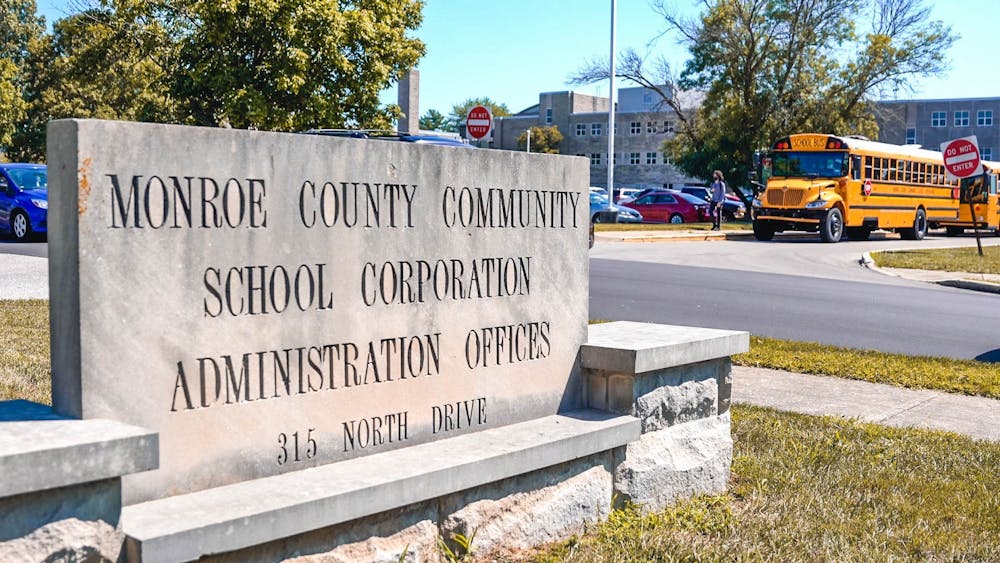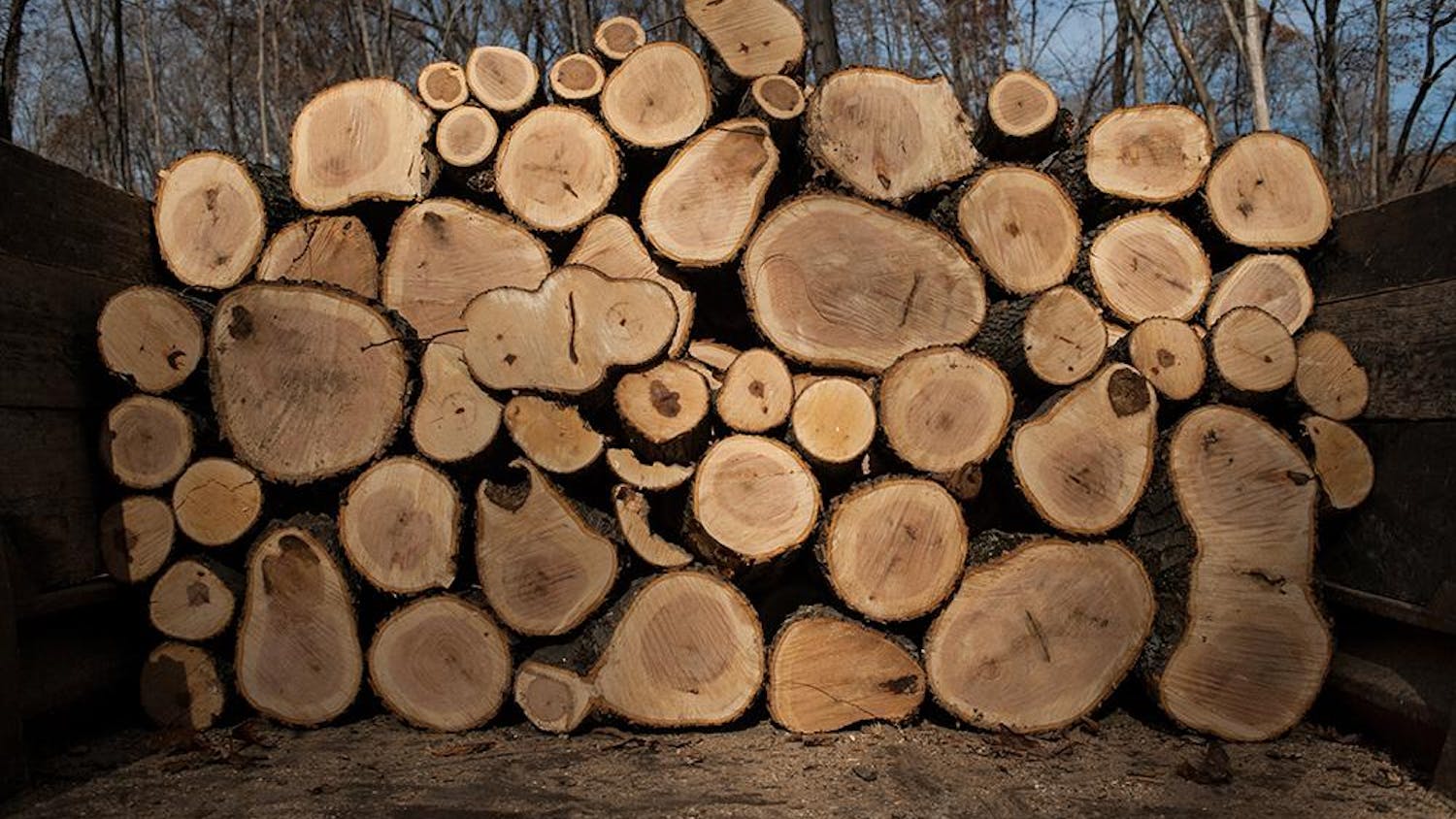Indiana schools are facing a dire teacher shortage as the 2022-2023 school year begins.
There are 1,572 open teaching positions statewide as of Thursday, as well as an additional 1,174 vacant school leadership, office staff or student support staff positions, according to the Indiana Department of Education job bank.
The Monroe County Community School Corporation fares better than other districts — however, it is feeling the impact of the educator shortage as it continues to search for instructional aides, paraprofessionals and guest teachers.
MCCSC has managed to fill all teaching positions, but had 15 unfilled teaching positions as late as July 25. Erin Stalbaum, assistant superintendent of Professional Learning and Certified Human Resources, said the district hosted a summer employment fair to attract applicants.
“Our employment fair this July was successful in helping us identify individuals for certain positions, and we had people sign employment paperwork on site,” Stalbaum said.
MCCSC Superintendent Jeff Hauswald said the district’s proximity to IU and above-average pay helped MCCSC attract qualified teachers even as the applicant pool shrunk.
“MCCSC continues to see qualified candidates applying for most of our positions,” Hauswald said. “We credit the close partnership with Indiana University School of Education, as well as our competitive salaries.”
In the 2021-2022 school year, MCCSC teachers’ salaries ranged from $43,250 to $80,125, according to the Monroe County Education Association 2021-2023 ratified collective bargaining agreement.
There will be an MCCSC referendum on Monroe County voters’ 2022 ballots, allowing citizens to vote on whether they want to increase property taxes to supplement school funding. If the November referendum passes, each teacher in MCCSC will receive a $4,500 annual raise. Additionally, support staff such as instructional aides will earn an additional $2.25 per hour.
Although MCCSC’s pay remains competitive within the state, Indiana pays teachers considerably less than neighboring states, according to the National Education Association. The average Indiana teacher salary in the 2020-2021 school year was $53,072. Illinois paid teachers an average of $70,705 during the 2020-2021 school year, while Michigan paid teachers an average of $64,262.
Indiana’s average salary leaves the state ranked 41st in the nation for teacher pay. Additionally, Indiana ranked 51st, or dead last, out of all 50 states and the District of Columbia in terms of teacher salary growth between 2002 and 2017, according to The Rockefeller Institute.
[Related: IU School of Education works to combat Indiana teacher shortage, 'Great Resignation']
Sandi Cole, director of the IU Center on Education and Lifelong Learning and former public-school teacher, said the pandemic made educator’s jobs more difficult and caused many to demand better pay.
“Educators have said in the past ‘I don’t work for the money. I love the kids. I love the profession,’” Cole said. “But the reality is, coming through the pandemic, more and more teachers are realizing they can’t make it on the current salary schedule.”
However, Cole said pay is not the only factor contributing to the teacher shortage. Increased hostility toward teachers, both from parents and politicians, is driving teachers to quit, Cole said.
Indiana House Bill 1134, introduced in the state’s 2022 legislative session, failed to pass but would have required teachers to publish their lesson plans a year in advance, as well as banned educators from teaching “divisive concepts.” Indiana House Bill 1130, which did pass during the state’s 2022 legislative session, forces school boards to allow public comment during meetings.
Cole said she wants people to know teachers are not quitting because it is difficult to deal with kids, they are quitting because it is difficult to deal with parents.
“It’s not the kids. Teachers have a passion for kids and, historically, we’ve figured out how to teach all kinds of kids that come into the classroom,” Cole said. “It’s not about bad kids., Iit’s about the lack of support that our legislature and parents are providing for teachers to really help kids learn.”
Paul Farmer, president of the Monroe County Education Association, said burnout, lack of legislative support and Indiana’s poor pay have been leading toward a teacher shortage for decades. Now that it’s happening, Farmer fears the problem will take even longer to solve.
“We’ve been predicting for two decades that we’re going to have a teacher shortage and now we’re actually starting to feel it,” Farmer said. “We didn’t get here overnight, and it’s not going to disappear overnight.”
Farmer said increased pay is critical, but burnout can only be solved by changing the public’s perception of the profession and encouraging community support.
“We have to find a way that the actual job itself is more sustainable, or at least survivable,” Farmer said. “We have to make the profession in the public’s eye more desirable to do. You go online and see people saying public school teachers are teaching racism, they’re teaching woke culture, they’re teaching our students who knows what. That rhetoric has to be stopped. This is absurd.”
[Related: Controversial education bill still being considered in Indiana House]
But MCCSC has fared better than other districts throughout the teacher shortage, partially due to remarkable community support, Farmer said. Farmer, a lifelong Bloomington resident and MCCSC teacher of 34 years, said MCCSC attracts teachers even during a shortage because the county appreciates its educators.
“Our community is so phenomenally supportive of our public schools,” Farmer said. “I just think our community is one of the best around, and if we are struggling getting teachers here in Bloomington with all of this tremendous support, imagine what it’s doing to those other communities that do not have the support that we have.”




